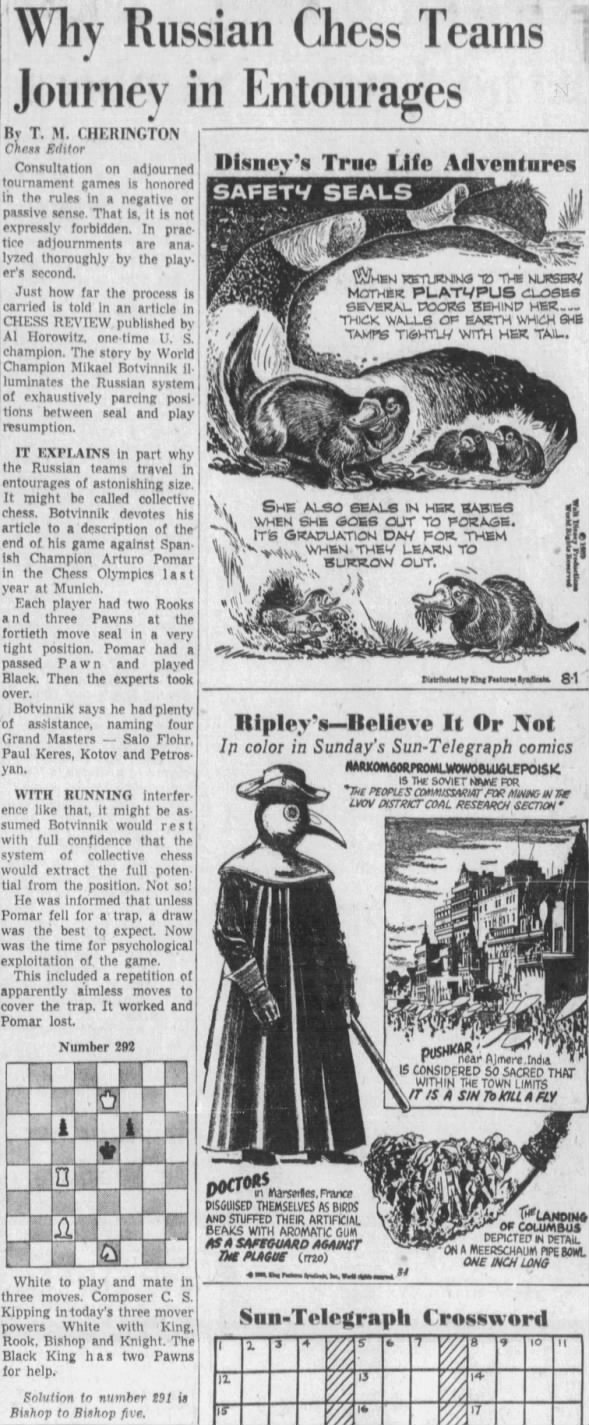 World of Chess 01 Aug 1959, Sat Pittsburgh Sun-Telegraph (Pittsburgh, Pennsylvania) Newspapers.com
World of Chess 01 Aug 1959, Sat Pittsburgh Sun-Telegraph (Pittsburgh, Pennsylvania) Newspapers.com
World of Chess by T. M. Cherington, Chess Editor
Why Russian Chess Teams Journey in Entourages
Consultation on adjourned tournament games is honored in the rules in a negative or passive sense. That is, it is not expressly forbidden. In practice adjournments are analyzed thoroughly by the player's second.
Just how far the process is carried is told in an article in CHESS REVIEW published by Al Horowitz, one-time U.S. champion. The story by World Champion Mikhail Botvinnik illuminates the Russian system of exhaustively parcing positions between seal and play resumption.
IT EXPLAINS in part why the Russian teams travel in entourages of astonishing size. It might be called collective chess. Botvinnik devotes his article to a description of the end of his game against Spanish Champion Arturo Pomar in the Chess Olympics last year at Munich.
Each player had two Rooks and three Pawns at the fortieth move seal in a very tight position. Pomar had a passed Pawn and played Black. Then the experts took over.
Botvinnik says he had plenty of assistance, naming four Grand Masters — Salo Flohr, Paul Keres, Kotov and Petrosyan.
WITH RUNNING interference like that, it might be assumed Botvinnik would rest with full confidence that the system of collective chess would extract the full potential from the position. Not so!
He was informed that unless Pomar fell for a trap, a draw was the best to expect. Now was the time for psychological exploitation of the game.
This included a repetition of apparently aimless moves to cover the trap. It worked and Pomar lost.
Pittsburgh Sun-Telegraph, World of Chess by T.M. Cherington, Pittsburgh, Pennsylvania, Saturday, August 01, 1959 White...
Posted by Bobby Fischer's True History on Tuesday, February 22, 2022
White to play and mate in three moves. Composer C.S. Kipping in today's three mover powers White with King, Rook, Bishop and Knight. The Black King has two Pawns for help.
FEN 8/4K3/2p2p2/4k3/2R5/8/2B5/4N3 w - - 0 1
Solution: 1. Rb4 Kd5 2. Be4+






















